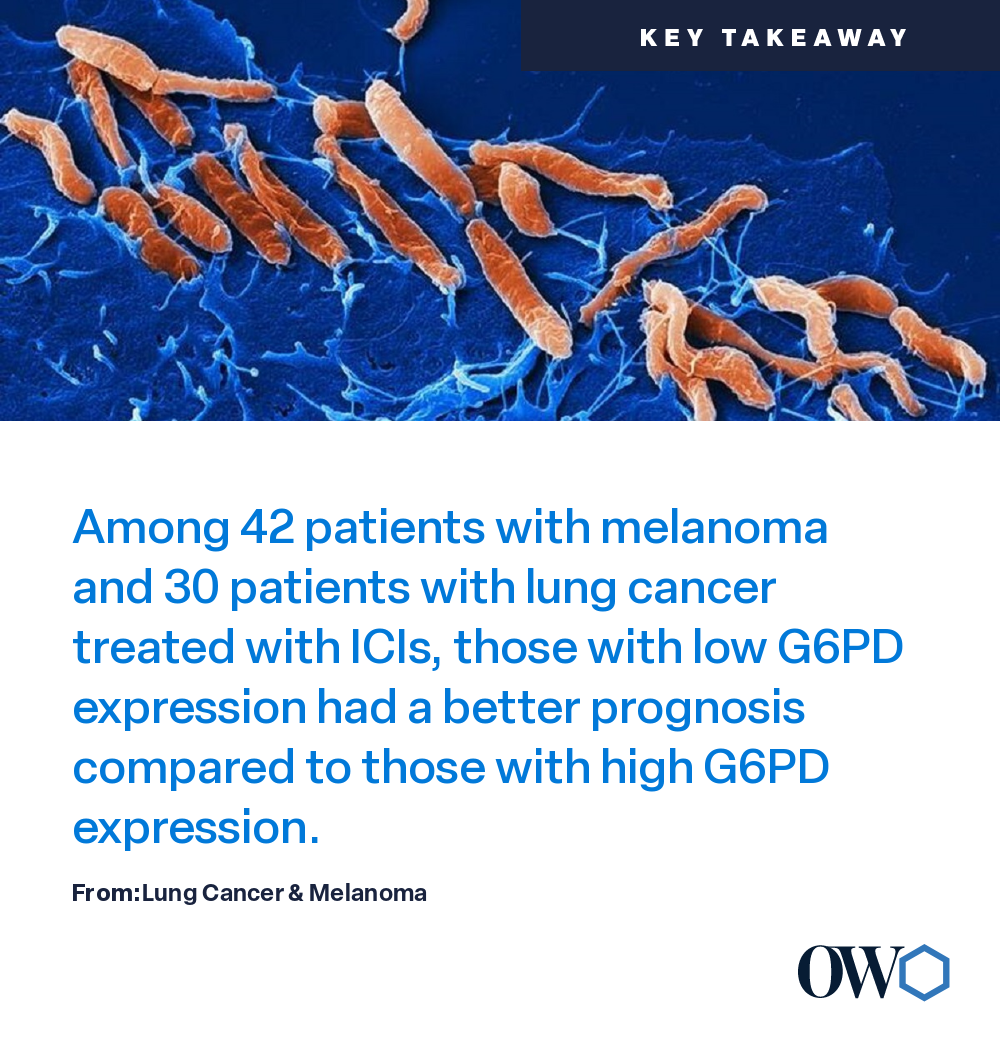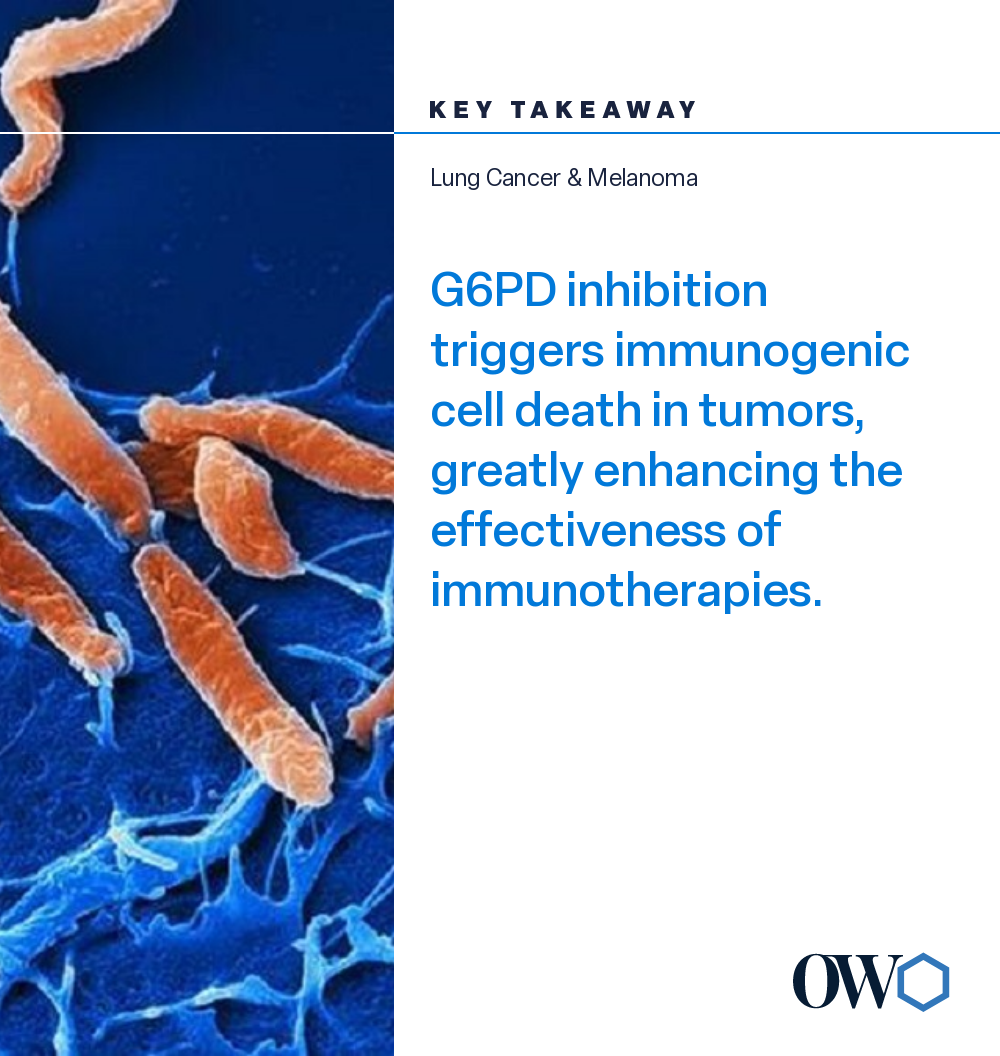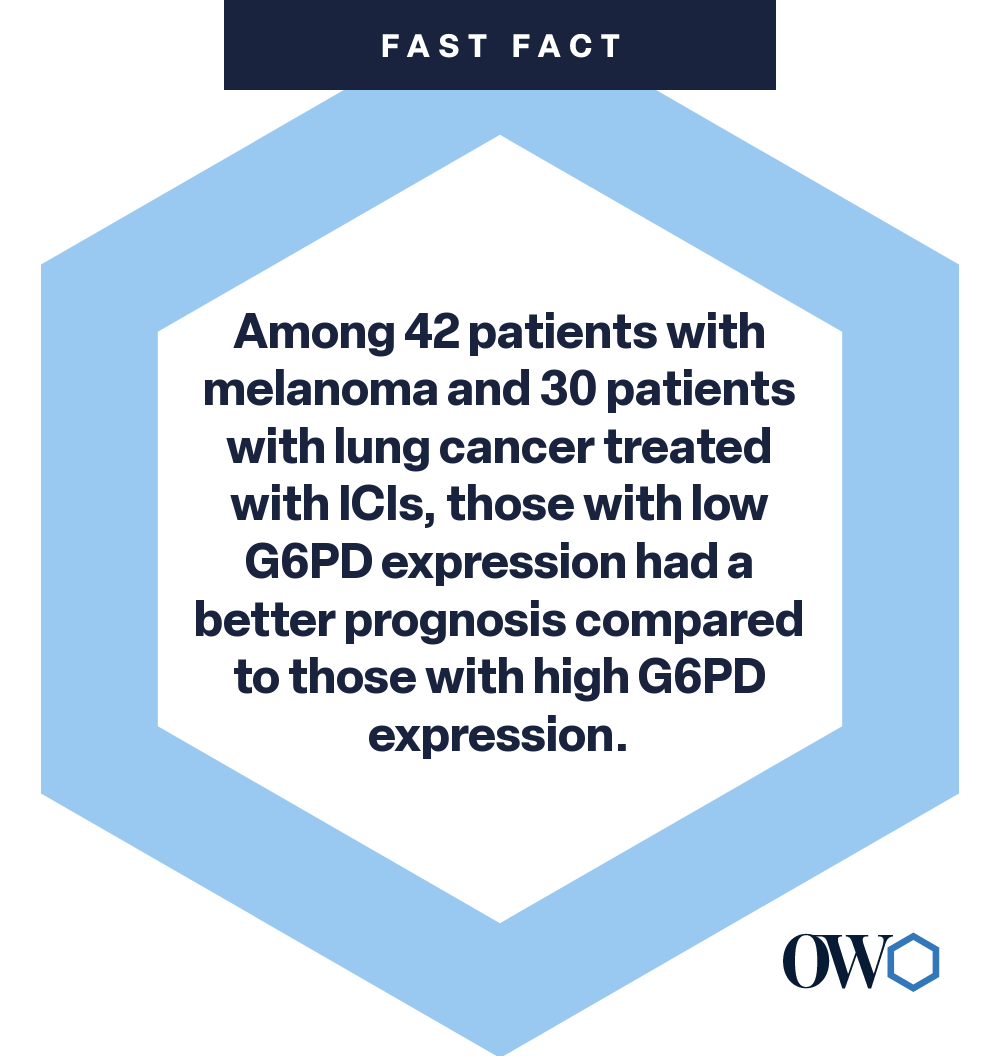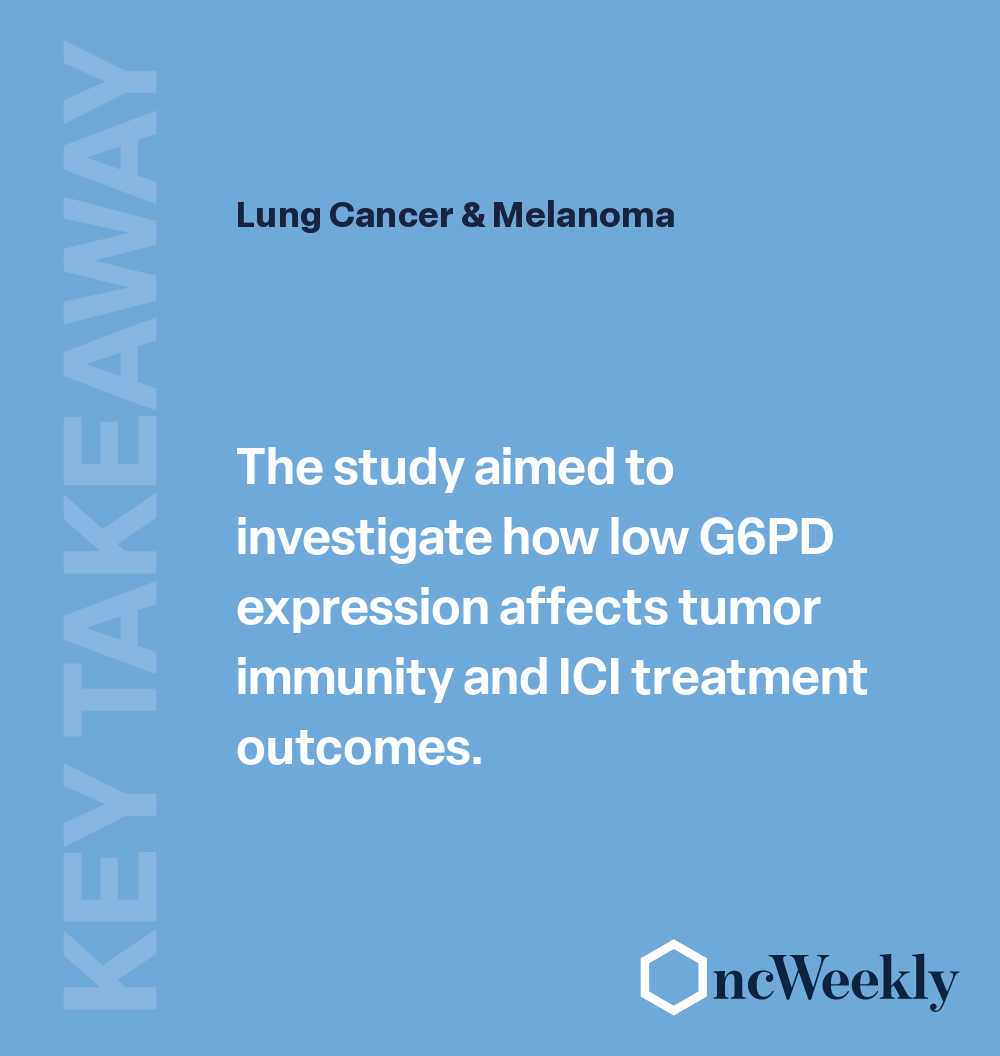KEY TAKEAWAYS
- The study aimed to investigate how low G6PD expression affects tumor immunity and ICI treatment outcomes.
- G6PD inhibition triggers immunogenic cell death in tumors, greatly enhancing the effectiveness of immunotherapies.
Enhanced glucose metabolism is observed in many cancers. Glucose-6-phosphate dehydrogenase (G6PD), a rate-limiting enzyme in the pentose phosphate pathway, maintains NADPH levels and protects cells from oxidative damage. Recent findings show that low G6PD expression correlates with active tumor immunity. However, the mechanism linking G6PD to tumor immunity, including in lung cancer, remains unclear.
Motoki Nakamura and the team aimed to clarify how low G6PD expression influences tumor immunity and the efficacy of immune checkpoint inhibitors (ICIs) in melanoma and lung cancer.
The methods included in vitro studies with G6PD-knocked down melanoma cells, pathway analysis using the GEO dataset, in vivo studies with ICIs in a mouse melanoma model, and prognostic analysis of 42 patients with melanoma and 30 patients with lung cancer treated with ICIs.
The results showed that inhibiting G6PD, both chemically and genetically, reduced NADPH production and oxidative stress tolerance, leading to cell death marked by the release of high mobility group box 1 and the translocation of calreticulin to the plasma membrane, suggesting G6PD inhibition induces immunogenic cell death.
In experiments with C57BL/6 mice transplanted with G6PD-knockdown B16 melanoma cells and treated with anti-PD-L1 antibody, there was a significant reduction in tumor size. Notably, inhibiting G6PD in some lesions increased the sensitivity of other lesions to ICIs.
Among 42 patients with melanoma and 30 patients with lung cancer treated with ICIs, those with low G6PD expression had a better prognosis compared to those with high G6PD expression (P=0.0473 for melanoma; P=0.0287 for lung cancer).
The study concluded that G6PD inhibition is a powerful therapeutic approach that induces immunogenic cell death in tumors and significantly enhances the effectiveness of immunotherapies.
This work was supported by the 5th Takagi award from Maruho Takagi Dermatology Foundation, the 15th Rohto award from Japanese Association of Geriatric Dermatology Research, and the Hori Sciences and Arts Foundation.
Source: https://pubmed.ncbi.nlm.nih.gov/39089738/
Nakamura M, Magara T, Yoshimitsu M, et al. (2024). “Blockade of glucose-6-phosphate dehydrogenase induces immunogenic cell death and accelerates immunotherapy.” J Immunother Cancer. 2024;12(7):e008441. Published 2024 Jul 31. doi:10.1136/jitc-2023-008441







